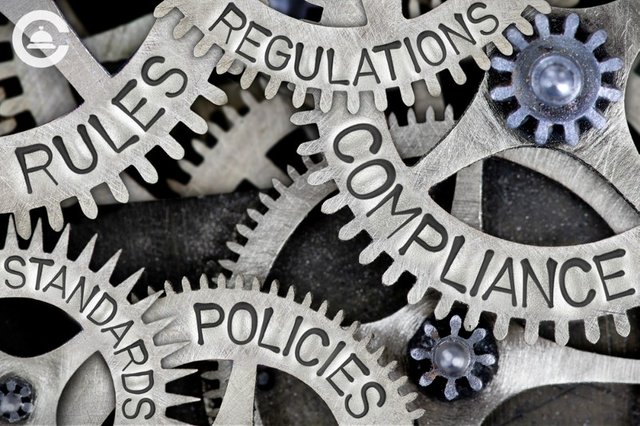ICO Regulations Worldwide
ICO Regulations Worldwide

2017 will be remembered for two things; the year Bitcoin went mainstream and the affirming of a new crowdfunding vehicle, ICO. Touted as the possible future of Venture Capitalism after raising more than $3 billion for blockchain-based startups last year alone, ICOs have allowed companies leverage cryptocurrencies to raise funds for the development of their projects. ICOs popularity stems from its decentralized nature, allowing anybody from anywhere in the world to participate without the bureaucracy associated with centralized crowdfunding. ICOs are also currently unregulated making it extremely easy to set up decentralized solutions to real world problems and get these solutions funded. However, this ease has become a powerful, exploitative tool for unscrupulous elements, scamming millions off the back of well-meaning contributors.
ICOs: More bark than bite?
More than 80% of last year’s ICOs were nothing more than a fancy website and ambiguous whitepaper. What they lack in products and assets they made up for with the overabundance of ‘disruptive’ and ‘revolutionary’ claims, claims they are yet to deliver on. This is what worries regulators .

While blockchain technology has been recognized as a tool capable of solving the attendant problems of centralization vis-à-vis the concentration and control of power by a single entity, invasion of privacy, contract default, and accessible payment channels, regulators are more concerned about protecting their citizens from being exploited. On July 25, the US Securities and Exchange Commission (SEC) issued a warning about ICOs, promptly followed by crackdowns. The SEC has since clarified its stance, allowing only accredited investors to participate in ICOs. Other countries too have followed suit — in one way or the other.
The UK:
Never far behind the US, the UK has insured warnings to her citizen about the dangers of participating in ICOs. However, the country is yet to issue regulations or prosecute anybody. Germany, Switzerland, and Japan havealso issued warnings and appears to be drafting regulatory sandbox policies .
European Union
Subject to future regulation, the EU currently allows consumers to participate in ICOs if the offering adheres to strict Anti-Money Laundering/Know Your Customer (AML/KYC) policies. The Union also requires business regulations and licenses regarding the ICO’s business function.
Canada
Security laws will be applied to any ICO that can be categorized as financial security. The country’s regulatory authorities have also developed a policy for regulating FinTech projects that cannot be fitted into her national regulatory scheme, such as ICOs.
Australia
As one of the first country to put up formal regulatory compliance policies, Australia requires adherence to the Corporations Act for ICOs offering combined investment of the issuance of disclosure document, and acquisition of a financial service license if offering financial advice to customers. The country has also issued draft laws creating a regulatory sandbox for FinTech startups to operate without being fully licensed.
Estonia
Estonia welcomes ICOs and was mulling about launching its own national offering, before conflicting with the Eurozone about nation states not having their own currencies. Gibraltar, Cayman Islands, Mauritius and the Isle of Man also welcome ICOs.
Allowed, but subject to future regulations

- Philippines has recognized Bitcoin’s validity for remittance and will be implementing KYC/AML policies for ICOs.
- Hong Kong Regulators have stated the certain offerings and altcoins can be classified as securities and will be treated as such.
- Thailand welcomes the use of altcoins and is yet to issue any warning or policies on ICOs.
- Israel appears to be warming up to FinTech offering through ICOs and may soon issue its own regulations.
Banned

A few countries have taken very aggressive stance on ICOs, banning them or issuing very stringent laws tantamount to bans . These countries includes:
- China
- Singapore
- South Korea
What About CJT?

ConnectJob’s CJT tokens are not a security, neither are they investment vehicles. CJT are simply remittance for services rendered on ConnectJob’s decentralized jobbing platform. CJT allows users to engage qualified jobbers and exchange values for a wide range of daily services including; driving, laundry, hairdressing and many more on the mobile app. Available for Android and IOS devices, users can download and try out its features from either Googleplay or Appstore.
Touted as the “uberfication” of the labour market, ConnectJob is currently offering CJT tokens to the general public on a secure and auditable platform. The offering has raised over $2 million in presales so far. Contributors can acquire these tokens at 2400CJT/ETH using Ethereum (ETH), Bitcoin (BTC), Litecoin (LTC), Dash (DASH), or in fiat (USD/EUR). This offer runs from 12/01/2017 to 02/11/2018.
For more information please visit: http://ico.connectjob.io/
